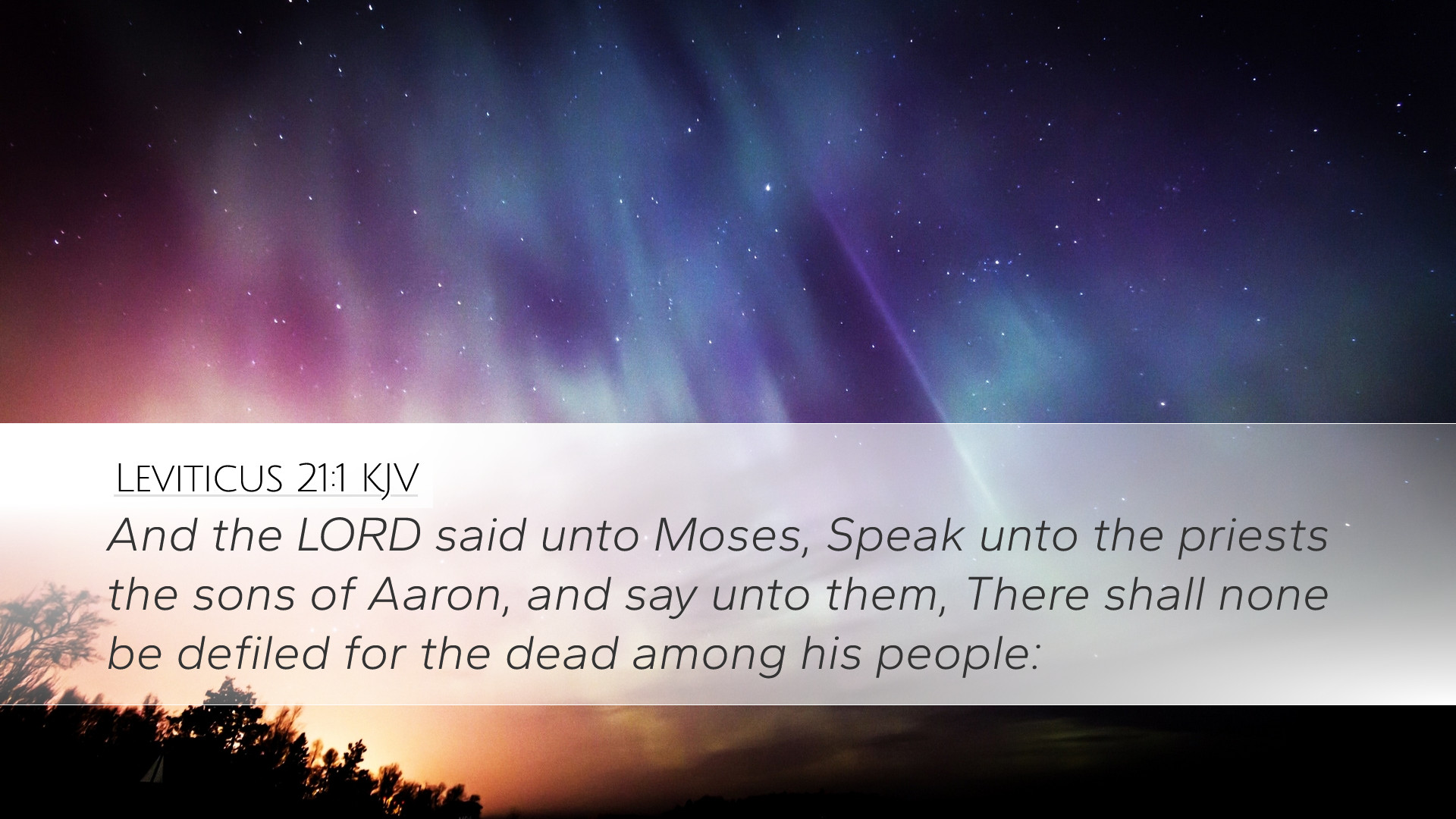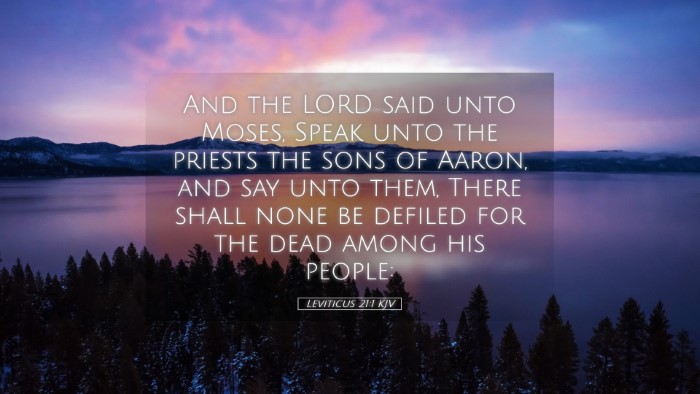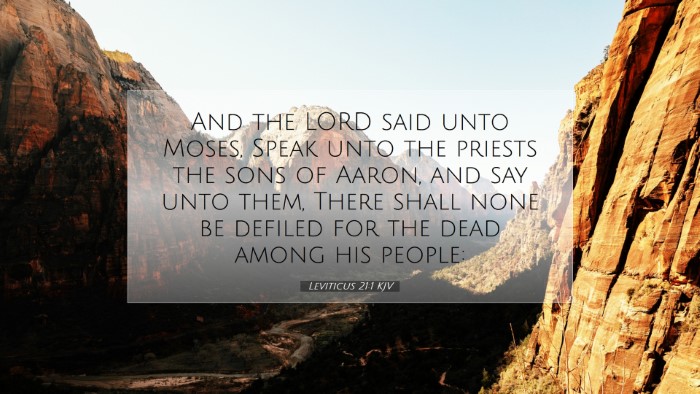Commentary on Leviticus 21:1
Leviticus 21:1 states: "And the Lord said unto Moses, Speak unto the priests the sons of Aaron, and say unto them, There shall none be defiled for the dead among his people." This verse is a directive pertaining to the priests of Israel and introduces critical themes concerning ritual cleanliness, holiness, and the role of the priest in mediating between God and His people.
Contextual Considerations
The Book of Leviticus is fundamentally a manual for priests and offerings, laying out the holiness codes that the people of Israel are to observe. This particular verse operates as an introduction to various regulations given to the priests, emphasizing their unique status in Israel's religious life. According to Matthew Henry, this instruction reflects God's continual call for His appointed leaders to maintain a higher standard of holiness, as they represent Him before the congregation and perform sacred duties.
The Call to Holiness
The commandment specifically regarding "defilement for the dead" indicates that while mourning is a natural human experience, the priests were to maintain a distinctive separation from common practices associated with burial and death, which were seen as making one unclean before the Lord. Albert Barnes emphasizes that this restriction serves to reinforce the notion that those who serve directly in the presence of God must adhere to stricter conditions than the laypeople.
Implications for Priestly Conduct
-
Separation from Death: The priest's role required a physical and spiritual separation from death to maintain the sanctity of their service. The act of touching a dead body, even for familial reasons, would result in a state of ceremonial uncleanness.
-
Focus on Divine Duties: Adam Clarke points out that the priests were to remain focused on their sacrificial duties and the ministry of worship. Hindrances, such as involvement in mourning practices, could detract from their responsibilities in the temple service.
-
Reflective of God’s Nature: This command closely reflects God's nature, showcasing His desire for purity and separation from sin and death—a common theme throughout the biblical narrative.
General Application for Ministry
While the instructions in Leviticus 21:1 are specific to the priesthood of ancient Israel, they hold timeless truths for contemporary ministry and personal spiritual practices. The call to holiness and the necessity of remaining spiritually clean resonate deeply with pastors, theologians, and believers alike.
Significance of Holiness in Ministry
-
Maintaining Integrity: Committing to a life of integrity and moral purity is fundamental for leaders who are to guide others in faith. The example set by priests encourages modern ministers to cultivate personal holiness.
-
Understanding Human Limitations: The acknowledgment of human experiences, such as grief, must be balanced with the call to serve with excellence and focus on God’s purposes, as seen in the lives of modern believers.
-
Exemplifying God’s Character: Just as the priests of old represented God's standards, contemporary Christians are called to reflect the character of Christ in their daily lives and ministries.
Theological Insights
Theological interpretations can also be drawn from this verse regarding the nature of God and His expectations for His people. The instructions reveal God’s desire for order, purity, and dedication among His leaders.
Reflection on Divine Presence
-
The Holy Nature of God: The very essence of God's instructions to the priests underlines His holiness. They are to serve as intermediaries significantly affected by the need to be pure before approaching Him.
-
Consequences of Disobedience: Just as priests who defiled themselves could not perform their functions adequately, this principle extends to the spiritual condition of those destined to serve in God's presence. Understanding the far-reaching implications of sin emphasizes the necessity for ongoing repentance and sanctification.
Conclusion
Leviticus 21:1 provides critical insight into the role and responsibilities of priests within the Israelite community, while simultaneously imparting crucial lessons relevant to today’s leaders in faith. The call to holiness and the necessary separation from sin and worldly influences is as pertinent now as it was in ancient Israel. By adhering to these principles, modern ministers can aspire to fulfill their roles diligently in service to God and His people, embodying the sanctity and dedication exemplified by the priests of old.


